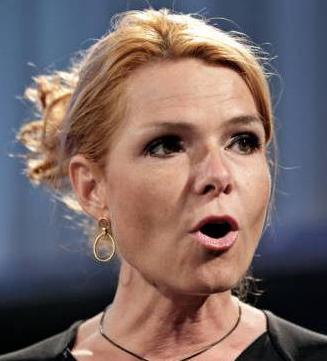 Muslims who show no interest in adopting Danish values ought to think about why they settled in Denmark in the first place, the immigration spokesperson for leading opposition party Venstre argued in an opinion piece published in Politiken newspaper today.
Muslims who show no interest in adopting Danish values ought to think about why they settled in Denmark in the first place, the immigration spokesperson for leading opposition party Venstre argued in an opinion piece published in Politiken newspaper today.
In her piece, Inger Støjberg criticises Danish Muslims who actively try to shield themselves from Danish values and norms and who think that their religious beliefs should not be allowed to be mocked. Støjberg pointed to a study of Danish Muslims in which 55 percent responded that criticising religion should be banned and 64 percent thought that free speech should be limited in particular circumstances.
“Denmark is the land of the Danes and you are more than welcome to become a Dane and take part in the work and community,” Støjberg wrote. “But to those Muslims who constantly work against us, constantly question us, are unsatisfied, encourage going to holy war in Syria, commit honour killings, belittle our values, flag or way of living – to all of you: Go and find somewhere else to live. No one is forcing you to stay. We accepted you and now it’s up to you to show the necessary respect for our society and the values it is built upon.”
Støjberg recently met with the Islamic faith group Det Islamiske Trossamfund for a debate, and in her article she criticised them for not condemning the use of stoning as a punishment or the practice of parents arranging marriages for their children.
She went on to argue that certain practices, such as Muslim teachers not wanting to shake hands with female pupils or Muslims requesting segregated facilities for sport training, contradict progress and equality.
“We should never arrive at a situation where we, through a misguided attempt at tolerance, accept actions, values or world views simply because the people who hold the views are a minority,” Støjberg said, adding that she ought to be able to paint the prophet Mohammed wearing a skullcap on the wall of her home without facing threats from Muslims.
Imran Shah, chairman of Det Islamiske Trossamfund, responded in Politiken to Støjberg’s criticisms on both stoning and arranged marriages. “Firstly, the Koran doesn’t talk about stoning. Secondly, no Muslims in Denmark are talking about stoning. No one wants to introduce stoning,” Shah said. “[And] If parents and children agree, and everyone consents without being forced into it, then what is wrong with arranged marriages?”
He added that he wasn’t surprised by her views on Muslims given her history of speaking critically about Islam.
“We are taking it with a grain of salt,” Shah said said. “But it is also very irresponsible with regards to the Danish society. We need to find some solutions to the economic challenges instead of throwing mud at each other. It seems so pointless to start a messy fight about values instead of trying to solve some real problems.”
Government parties Socialdemokraterne (S) and Socialistisk Folkeparti both said they agreed with the general points made by Støjberg, but that her approach to Danish Muslims lacked nuance.
“We agree that we should follow Danish values in this country,” Jacob Bjerregaard, S’s immigration spokesperson, told Berlingske newspaper. “But she makes no effort to differentiate between Muslims who live a peaceful life and go to work and look after their children and those who have a conservative approach to living in a modern society. Støjberg’s target is far too broad.”
Bjerregaard also criticised Støjberg for not coming forward with any new measures to improve integration. “There are no new proposals here. It’s pure rhetoric. I think it is about the need for Venstre to stand out after tumbling aimlessly around for some time. But let’s start the debate.”
Spotting an opportunity, Martin Henriksen, integration spokesperson for Dansk Folkeparti, proposed that Venstre should use this opportunity to follow up with strict policies aimed at curbing migration from Muslim countries.
“I think that Venstre and Dansk Folkeparti should join together for the next election with a goal of reducing Muslim immigration to somewhere close to zero. It is the most effective solution to ensure that Denmark will remain socially and culturally united in the decades ahead,” Henriksen said.
